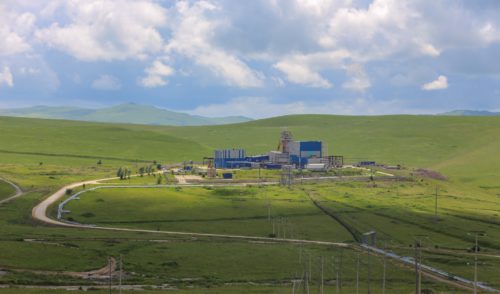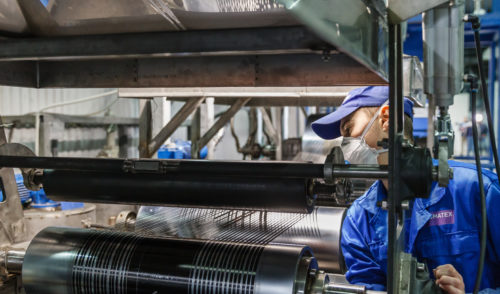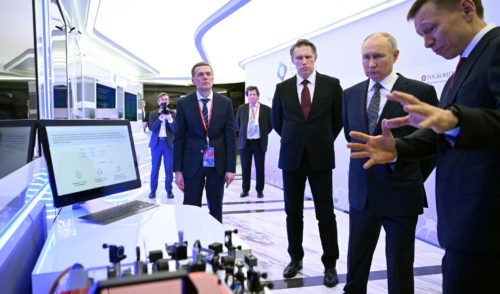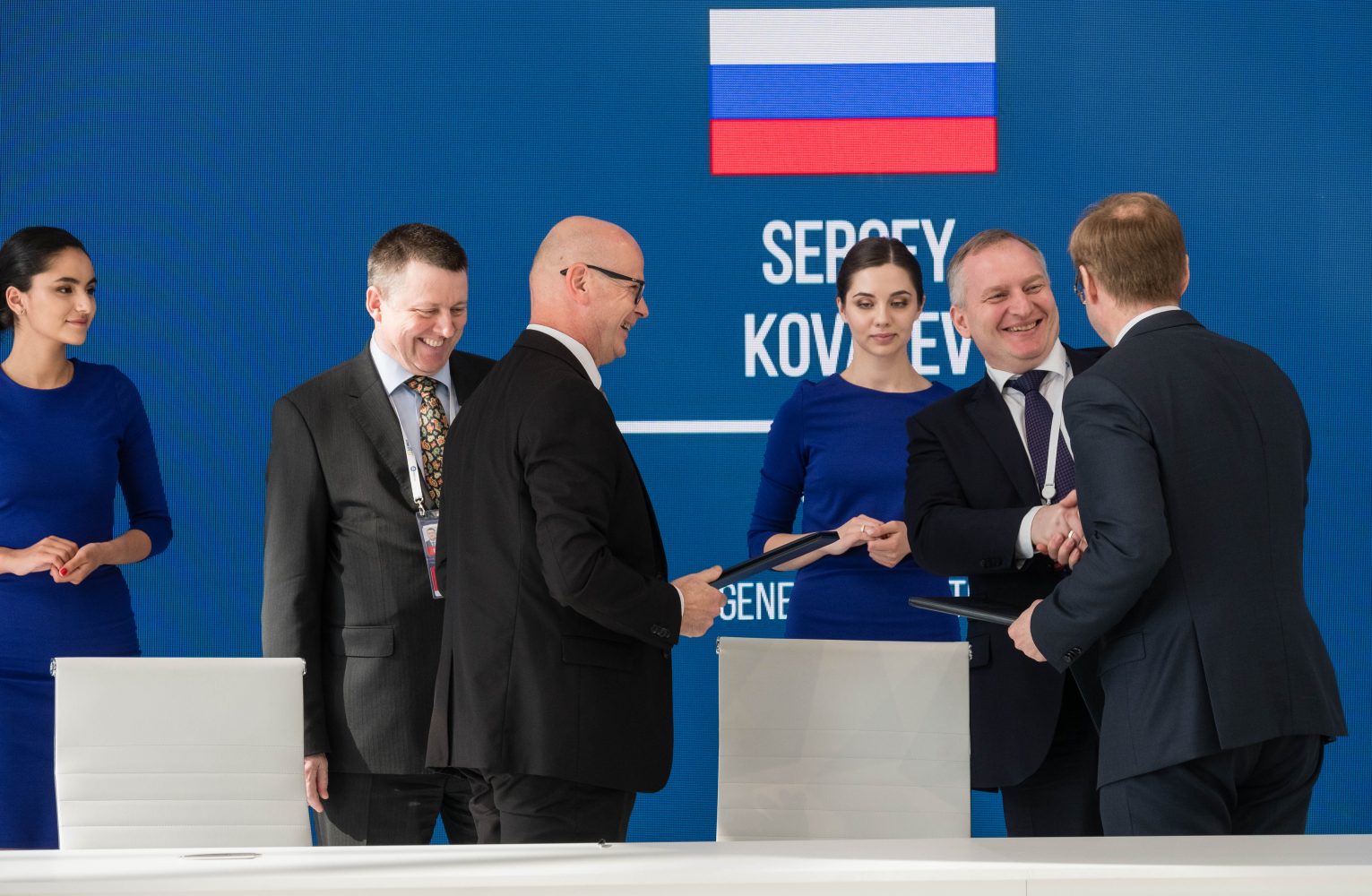
The Next Episode
back to contentsNuclear power plants
Low-power plants are a new trend that is taking shape in today’s nuclear power industry. Attempts to design small modular reactors (reactors with a capacity of up to 300 MW) are being made by both leading nuclear companies and startups. The reason why the trend is growing stronger is simple: small modular reactors (SMRs) can be deployed in remote areas and island countries to meet local demand for electricity, heat and, if properly equipped, even fresh water. Modular reactors for low-power plants will be produced in series and loaded with fuel at the manufacturing site. Once delivered to the point of destination, they will need only installation and no construction.
SMRs are also expected to supply power to off-grid industrial facilities, such as drilling rigs, mining and steel-making plants. Additionally, they can be easily integrated into the existing infrastructure to replace thermal power plants polluting the environment.
IAEA’s booklet Advances in Small Modular Reactor Technology Developments 2018, which is updated every other year, lists 56 SMR designs, 16 of which have been produced in Russia. Given the reports presented at global forums and conferences, the number of SMR designs worldwide is approaching a hundred.
Modular reactors
TENEX signed a memorandum of understanding with Smart Power, a South Korean SMR construction vendor. The parties are negotiating terms and conditions of SMR fuel supply and management of spent fuel and nuclear waste.
Small nuclear power plants
Rusatom Overseas signed a memorandum of understanding with Russia’s GHP Group. The companies will team up to develop power supply solutions for the Suroyam iron ore deposit in the Chelyabinsk region (Russia). The document outlines actions to be taken, including site selection and feasibility studies, if the decision is made to construct a small nuclear power plant based on a RITM 200 reactor.
Production
Pipes
Rosatom and TMK, a Russian pipe producer, made an agreement to manufacture tubular products and develop new types of steel pipes. The document provides for cooperation in research and development to create new steel grades and modify surface properties of steel products. It was signed by Kirill Komarov, Rosatom’s First Deputy Director General for Corporate Development and International Business, and Alexander Shiryaev, CEO of TMK.
Titanium
Rosatom continues its expansion into non-power markets. Rosatom’s TVEL Fuel Company made an agreement with Germany-based Hermith on the joint development of titanium production and sales of products on the European and other markets. Their joint venture will be based at the Rosatom’s subsidiary Chepetsk Mechanical Plant (CMP) and produce steel wire for additive manufacturing, sonotrodes, vehicle suspension components, medical implants and prosthetic devices, and pipe spools for the aircraft industry.
“We have been working with TVEL since 2016 when we organized shipments of semi-finished titanium alloy products to Western Europe within the shortest time possible (key customers were Bombardier, Leonardo, Fucine Umbre, ThyssenKrupp, Vacucast and Permedica – RN). With the new agreement, we have moved to a new level and consider supplying finished products to aircraft manufacturers. This opens up a new opportunity to set up an aerospace and additive manufacturing cluster in Russia with the USA, Western Europe and Canada as target markets,” Hermith’s CEO Alexey Rasskazov said.
New engine family
Rusatom Additive Technologies and the Ural Works of Civil Aviation signed a strategic cooperation agreement to develop the EM-401 engine family, create a competency center for gas turbine manufacturing, and promote a broader industrial collaboration.
Low voltage switchboards
Ural Switchgears (USG) series of low voltage switchboards (LVS) manufactured by Rusatom Automated Control Systems (RASU) and the Urals Electromechanical Plant (UEP) were certified as meeting the International Electrotechnical Commission (IEC) standards by the ASEFA, a French-based electrical product certification body. This enables RASU to bid for contracts to supply LVS systems to Russian-designed nuclear power plants constructed abroad. Within the next 10 years, UEP will produce over 12,000 low-voltage switchboards.
LVS are used to distribute electric power to equipment operating at low-voltage and essential to the reliability of an electrical system.
The need for LVS certification arose in late 2018 as almost all countries where Rosatom operates (Finland, Hungary, Egypt, etc.) have started to require international certification. An EU-accredited third party certification body was to confirm that the company’s equipment and technologies conformed to the international standards and contract terms. Prior to that, the manufacturer had to be assessed for information security, environmental resource management, occupational safety, etc.
This important stage is now over, but there is still a lot of work to do. RASU also intends to have its other equipment and process control systems (direct current boards, smart LVS, upper-level software and hardware, etc.) certified for compliance with international requirements.
Radiation control
RASU, France-based Mirion Technologies and its exclusive Russian partner Radico signed a memorandum of understanding to increase localization in radiation control equipment and develop next-generation radiation control systems for power plants and other nuclear facilities in and outside of Russia. A roadmap on how to achieve these goals will be ready by the year-end. “We are switching from competition to cooperation on level terms, and this is a win-win strategy. As an integrator of process control systems, RASU will increase the share of in-house products in its portfolio, Radico will be awarded an engineering contract, while Mirion will be in charge of sales channels and market expansion,” Andrey Butko, CEO of RASU, said.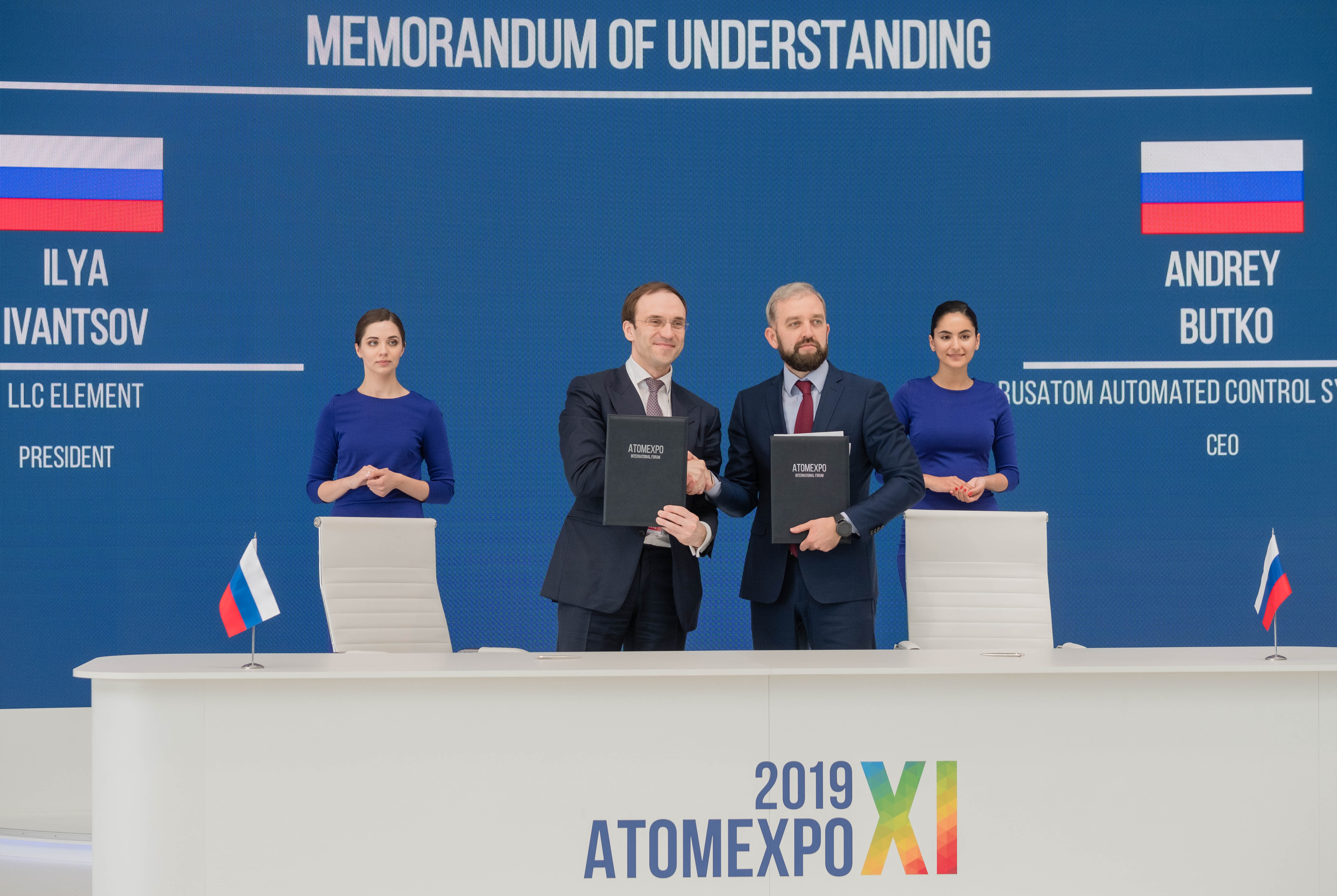
Pumps
The Central Design Bureau of Machine Building signed a contract with Czech-based ŽĎAS for the supply of forgings to be used in making pumps for the Kursk, Leningrad II and Akkuyu nuclear power plants. Talks are underway to supply forgings for main circulation pumps (MCP) of other plants. Once machined and tested, safety class 2 and 3 forgings will be used to manufacture MCP components, including those for the latest pump models with water lubrication. In 2019, ŽĎAS will produce over 400 forgings with a total weight of nearly 200 tons.
Gas turbines
AtomEnergoMash and US-based PW Power Systems (PWPS) signed a memorandum of understanding to construct small and medium-sized gas turbine power plants and develop the production of gas turbine components in Russia. The parties intend to run joint projects in Russia and other countries.
Raul Pereda, President and CEO of PWPS, noted that he was pleased to make an agreement with one of Russia’s largest mechanical engineering companies. PWPS gas turbines have been used in CIS countries for more than 20 years, and the company hopes that cooperation with AtomEnergoMash will help it bring even more competitive solutions to the market.
PW Power Systems is a subsidiary of Mitsubishi Hitachi Power Systems, Ltd. The company develops and manufactures gas turbines based on Pratt & Whitney® aircraft motors with a capacity ranging from 30 to 140 MW. At present, over 2,000 industrial gas turbines manufactured by PWPS operate in more than 50 countries.
Nuclear and oil
Russia is building Egypt’s first nuclear power plant El Dabaa, but this is not the only area where the two countries cooperate. AtomEnergoMash (Rosatom power engineering company) signed a memorandum of understanding with Petrojet, a leading EPC company in the Middle East and Africa. The parties agreed to join their efforts in the production and supply of equipment for nuclear power plants, oil extraction and petrochemistry.
Petrojet also signed an agreement with the Central Research Institute for Machine Building Technology on cooperation in nuclear projects. The Russian party will arrange for the certification of materials, processes, equipment and laboratories, as well as train and certify the staff in compliance with Russian standards and regulations.
Waste management
ZiO-Podolsk (part of Rosatom’s power engineering division) and Swiss subsidiary of Hitachi Zosen Corporation – Hitachi Zosen INOVA – signed an agreement to set up a consortium to develop and supply electromechanical and process control systems for four waste-to-energy plants in the Moscow Region.
Zio-Podolsk is a supplier of turbine island equipment for plants constructed in Russia by RT-Invest using the technology developed by Hitachi Zosen INOVA. The company is expected to produce a total of 14 boilers – three for each plant in the Moscow Region and two for a plant in Tatarstan.
Medicine
One of Rosatom’s priority lines of business is nuclear medicine, particularly, diagnostics and radionuclide therapy used in the treatment of cancer, cardiac and neurological diseases. Rusatom Healthcare is in charge of the company’s operations in this area and comprises such industry leaders as Research Institute of Applied Physics and Automation (NIITFA) (a manufacturer of equipment for nuclear medicine), Izotop (an isotope supplier), Karpov Institute of Physical Chemistry (a radiopharmaceuticals manufacturer) and so forth.
At ATOMEXPO 2019, Rusatom Healthcare and NIITFA signed a memorandum of understanding with Slovenia’s Cosylab on the cooperation in developing integrated software for NIITFA’s radiation therapy units. Cosylab will be involved in the implementation of a quality management system and international certification of the software. The parties also consider developing medical dosimetry software and creating a cancer treatment information system.
People
Population
Large industries, such as nuclear power generation, cannot exist without public support. The Russian Association of NPP Regions and Hungary’s Association for Public Control, Information and Regional Development (TEIT) signed a memorandum of understanding. It provides for knowledge exchange to raise public awareness and confidence in the nuclear power industry. The parties expect to continue their cooperation within the Group of European Municipalities with Nuclear Facilities (GMF), which the Russian organization intends to join by the end of the year.
Human resources
Highly skilled workforce is essential for the nuclear industry. Rusatom International Network (RIN) and Hungary’s University of Dunaújváros made an agreement to hold joint lectures and seminars, publish learning materials, set up a student exchange program, etc. According to Rector András István, the University of Dunaújváros and Rosatom have a vast practical and theoretical knowledge base, specifically in material science and advanced welding technologies.
Meanwhile, Rosatom’s Technical Academy (a part of RosEnergoAtom) signed an agreement on training nuclear workforce with Uzbekistan’s Nuclear Energy Development Agency (Uzatom) and a memorandum of understanding on cooperation with the European Nuclear Education Network (ENEN).
Back end
Rosatom fuel division TVEL and Spain’s IDOM signed a memorandum of understanding on the development of joint international business. The parties are yet to outline the areas of nuclear and non-nuclear cooperation. First and foremost, these will include nuclear decommissioning, which holds much promise for Rosatom’s nuclear fuel company. “We have unique experience in nuclear legacy management, including the use of technologies for returning nuclear sites to greenfield status and safe radioactive waste storage. Our partners from IDOM also have nuclear decommissioning competencies. By joining our efforts, we will be able to bid for international projects,” Konstantin Tulupov, TVEL’s Vice President for Business Development said. IDOM is a provider of engineering and consulting services in power generation, infrastructure, civil engineering and environmental protection.
It should be noted that Rosatom has solid experience in decommissioning nuclear power plants, including in cooperation with foreign companies. In May, a consortium of Uniper Anlagenservice and Rosatom’s NUKEM Technologies won a contract for the dismantlement of two boiling-water reactor vessels at Oskarshamn and two more at Barsebäck in Sweden.
Fuel
TVEL and the Egyptian Atomic Energy Authority (EAEA) signed a contract for the supply of uranium components from the Novosibirsk Chemical Concentrates Plant. The components will be used in the production of low-enriched nuclear fuel for the ETTR-2 research reactor installed at the Nuclear Research Center in Inshas. The reactor is operating since 1997 and used to carry out research in particle physics, material science and fabricate stable isotopes.
Standards
The Central Research Institute for Machine Building Technology and France’s Bureau Veritas Exploitation (an international certification agency) intend to pool their resources in Europe and Russia to certify welding procedures and welders in accordance with international standards. “This cooperation makes it much easier for Russian welders to obtain work permits in Europe and for Russian manufacturers to supply their products abroad. Our company will provide the testing site, prepare the certification procedure, and advise the welders willing to get certified at Bureau Veritas. At the moment, we are the only Russian company where you can be trained and certified to any applicable standards, including those of the National Welding Control Agency, nuclear industry regulations and the EU rules,” Vladimir Orlov, Director of the Institute, said.


